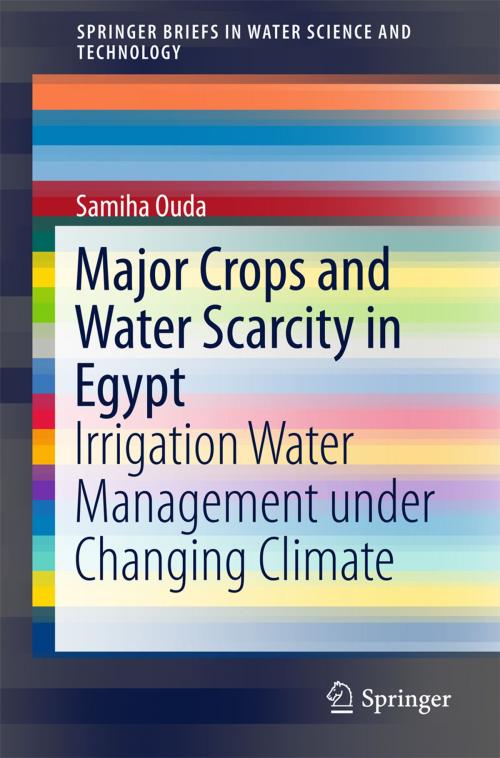Major Crops and Water Scarcity in Egypt
Irrigation Water Management under Changing Climate
Nonfiction, Science & Nature, Science, Biological Sciences, Environmental Science, Earth Sciences, Nature| Author: | Samiha Ouda | ISBN: | 9783319217710 |
| Publisher: | Springer International Publishing | Publication: | August 24, 2015 |
| Imprint: | Springer | Language: | English |
| Author: | Samiha Ouda |
| ISBN: | 9783319217710 |
| Publisher: | Springer International Publishing |
| Publication: | August 24, 2015 |
| Imprint: | Springer |
| Language: | English |
This book includes multi-disciplinary quantifications of the effect of climate change on water requirements of wheat, maize, rice and sugarcane. Furthermore, it provides on-farm management that faces water scarcity under current situation and under climate change. Changing cultivation method (raised beds instead of furrows or basins) or increasing irrigation application efficiency (sprinkler or drip systems instead of surface irrigation) can reduce the applied water. Irrigated agriculture, although profitable, it endures wasteful use of valuable water resources. Taking into account the risk of climate change, developing countries like Egypt will highly suffer. Furthermore, the effect of intercropping (two crops use the applied water to one of them), and/or using crop rotations (arrange crops to reduce the applied water, increase water productivity and sustain soil fertility) on production and consumed irrigation water by crops were comprehensively analyzed.
This book includes multi-disciplinary quantifications of the effect of climate change on water requirements of wheat, maize, rice and sugarcane. Furthermore, it provides on-farm management that faces water scarcity under current situation and under climate change. Changing cultivation method (raised beds instead of furrows or basins) or increasing irrigation application efficiency (sprinkler or drip systems instead of surface irrigation) can reduce the applied water. Irrigated agriculture, although profitable, it endures wasteful use of valuable water resources. Taking into account the risk of climate change, developing countries like Egypt will highly suffer. Furthermore, the effect of intercropping (two crops use the applied water to one of them), and/or using crop rotations (arrange crops to reduce the applied water, increase water productivity and sustain soil fertility) on production and consumed irrigation water by crops were comprehensively analyzed.















